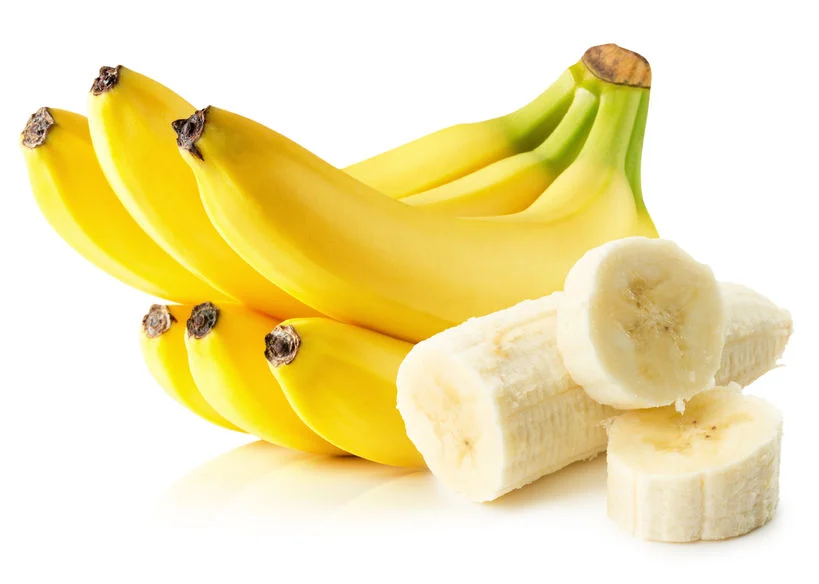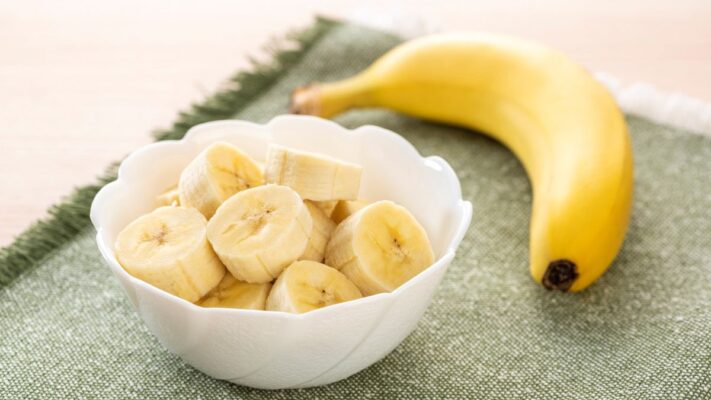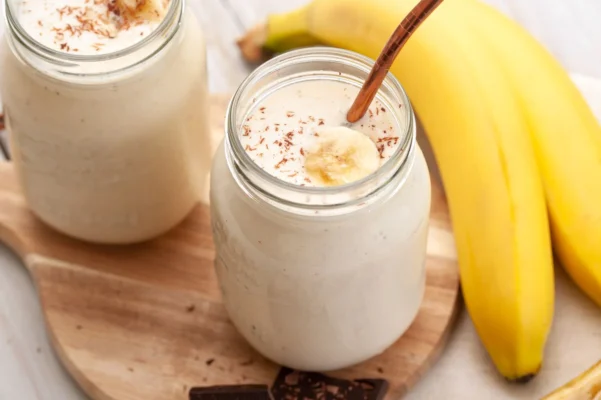Bananas are one of the most widely consumed fruits in the world, loved for their sweet taste, convenience, and numerous health benefits. They are packed with essential nutrients that can contribute to overall health and wellness. This article provides an in-depth look at the nutritional content of bananas, their health benefits, and how they can be incorporated into a balanced diet.
Nutritional Profile of Bananas
Bananas are a rich source of essential vitamins, minerals, and other beneficial compounds. Here is a detailed breakdown of the nutrients found in a medium-sized banana (approximately 118 grams):
- Calories: 105
- Carbohydrates: 27 grams
- Sugars: 14 grams
- Dietary Fiber: 3 grams
- Protein: 1 gram
- Fat: 0.3 grams
- Iron: 0.3 mg (1% of the Daily Value)
- Vitamin C: 10.3 mg (17% of the Daily Value)
- Vitamin B6: 0.4 mg (20% of the Daily Value)
- Vitamin A: 76 IU (1% of the Daily Value)
- Potassium: 422 mg (12% of the Daily Value)
- Magnesium: 31.9 mg (8% of the Daily Value)
- Folate: 24 mcg (6% of the Daily Value)
- Riboflavin: 0.1 mg (5% of the Daily Value)
- Niacin: 0.8 mg (4% of the Daily Value)
Key Nutrients in Bananas and Their Benefits
1. Carbohydrates
Bananas are primarily composed of carbohydrates, providing a quick source of energy. The carbohydrates in bananas include sugars such as glucose, fructose, and sucrose, which are easily digestible and can rapidly replenish glycogen stores in the body. This makes bananas an excellent snack for athletes and those needing a quick energy boost.
2. Dietary Fiber
A medium-sized banana contains about 3 grams of dietary fiber. The fiber in bananas includes both soluble and insoluble types, which have several health benefits:
- Soluble Fiber: Helps to slow down digestion and stabilize blood sugar levels.
- Insoluble Fiber: Adds bulk to the stool and aids in regular bowel movements, preventing constipation.
3. Potassium
Bananas are renowned for their high potassium content, with a medium banana providing about 12% of the daily recommended intake. Potassium is crucial for maintaining proper heart and muscle function, regulating fluid balance, and supporting nerve function. Adequate potassium intake can help lower blood pressure and reduce the risk of stroke.
4. Vitamin C
Vitamin C is an antioxidant that helps protect the body from oxidative stress and supports the immune system. It also plays a role in collagen production, which is important for skin health and wound healing. A medium banana provides approximately 17% of the daily value for vitamin C.
5. Vitamin B6
Vitamin B6 is involved in over 100 enzyme reactions in the body, including those related to metabolism and brain function. It helps in the production of neurotransmitters and red blood cells. A medium banana provides 20% of the daily value for vitamin B6.
6. Magnesium
Magnesium is an essential mineral involved in muscle function, nerve transmission, and bone health. It also plays a role in energy production and helps regulate blood sugar levels. A medium banana provides about 8% of the daily value for magnesium.
7. Folate
Folate, or vitamin B9, is crucial for cell division and the formation of DNA. It is particularly important during pregnancy for the healthy development of the fetus. A medium banana provides 6% of the daily value for folate.
Health Benefits of Bananas
1. Heart Health
The high potassium content in bananas helps maintain healthy blood pressure levels. Potassium acts as a vasodilator, meaning it helps relax blood vessels and reduce tension, lowering the risk of hypertension and cardiovascular diseases. The fiber, vitamin C, and vitamin B6 in bananas also contribute to heart health by reducing cholesterol levels and preventing artery damage.
2. Digestive Health
Bananas are known for their digestive benefits, primarily due to their fiber content. The soluble fiber in bananas helps to slow down digestion, allowing for better nutrient absorption, while the insoluble fiber aids in regular bowel movements, preventing constipation. Bananas also contain prebiotics, which promote the growth of beneficial gut bacteria, supporting overall gut health.
3. Weight Management
Bananas can be a valuable addition to a weight management plan. They are low in calories and high in fiber, which helps you feel full and satisfied, reducing the likelihood of overeating. The natural sugars in bananas provide a healthy, low-calorie source of energy, making them an ideal snack for those looking to manage their weight.
4. Energy Boost
The carbohydrates and natural sugars in bananas make them an excellent source of quick energy. They are often consumed by athletes before or after workouts to replenish glycogen stores and provide a quick energy boost. The combination of glucose, fructose, and sucrose in bananas ensures both immediate and sustained energy release.
5. Skin Health
The vitamin C and antioxidants in bananas contribute to healthy, glowing skin. Vitamin C plays a crucial role in collagen production, which is essential for maintaining skin elasticity and preventing wrinkles. The antioxidants in bananas help to fight free radicals, protecting the skin from damage and promoting a youthful appearance.
6. Bone Health
While bananas are not particularly high in calcium, they contain several other nutrients that contribute to bone health, including potassium and magnesium. These minerals help to preserve bone density and prevent osteoporosis by neutralizing acid load and maintaining the body’s pH balance.
Incorporating Bananas into Your Diet
Bananas are incredibly versatile and can be easily incorporated into your daily diet. Here are some ideas for adding bananas to your meals and snacks:
1. Smoothies
Bananas add natural sweetness and a creamy texture to smoothies. Blend a banana with your favorite fruits, vegetables, yogurt, and a liquid of your choice (such as milk, almond milk, or juice) for a nutritious and delicious drink.
2. Breakfast
Bananas can be a perfect addition to your breakfast. Slice a banana over your cereal or oatmeal, blend it into pancake or waffle batter, or simply enjoy it on its own as a quick and healthy start to your day.
3. Snacks
Bananas make a convenient and portable snack. Pair a banana with a handful of nuts or a spoonful of peanut butter for a balanced snack that provides protein, healthy fats, and carbohydrates.
4. Baking
Bananas can be used in baking to add natural sweetness and moisture to recipes. Use mashed bananas in muffins, cakes, or bread for a healthier alternative to sugar and fats.
5. Desserts
Bananas can be used to create healthy and delicious desserts. Freeze banana slices and blend them to make a creamy, dairy-free ice cream, or dip banana pieces in dark chocolate for a sweet treat.
Conclusion
Bananas are a nutrient-dense fruit that offers numerous health benefits. Their rich content of essential vitamins, minerals, and fiber makes them a valuable addition to a balanced diet. Whether enjoyed on their own, in smoothies, or as part of a meal, bananas can contribute to heart health, digestive health, weight management, energy levels, bone health, and skin health. Incorporating bananas into your diet is a simple and delicious way to boost your overall health and well-being.




